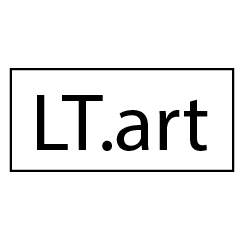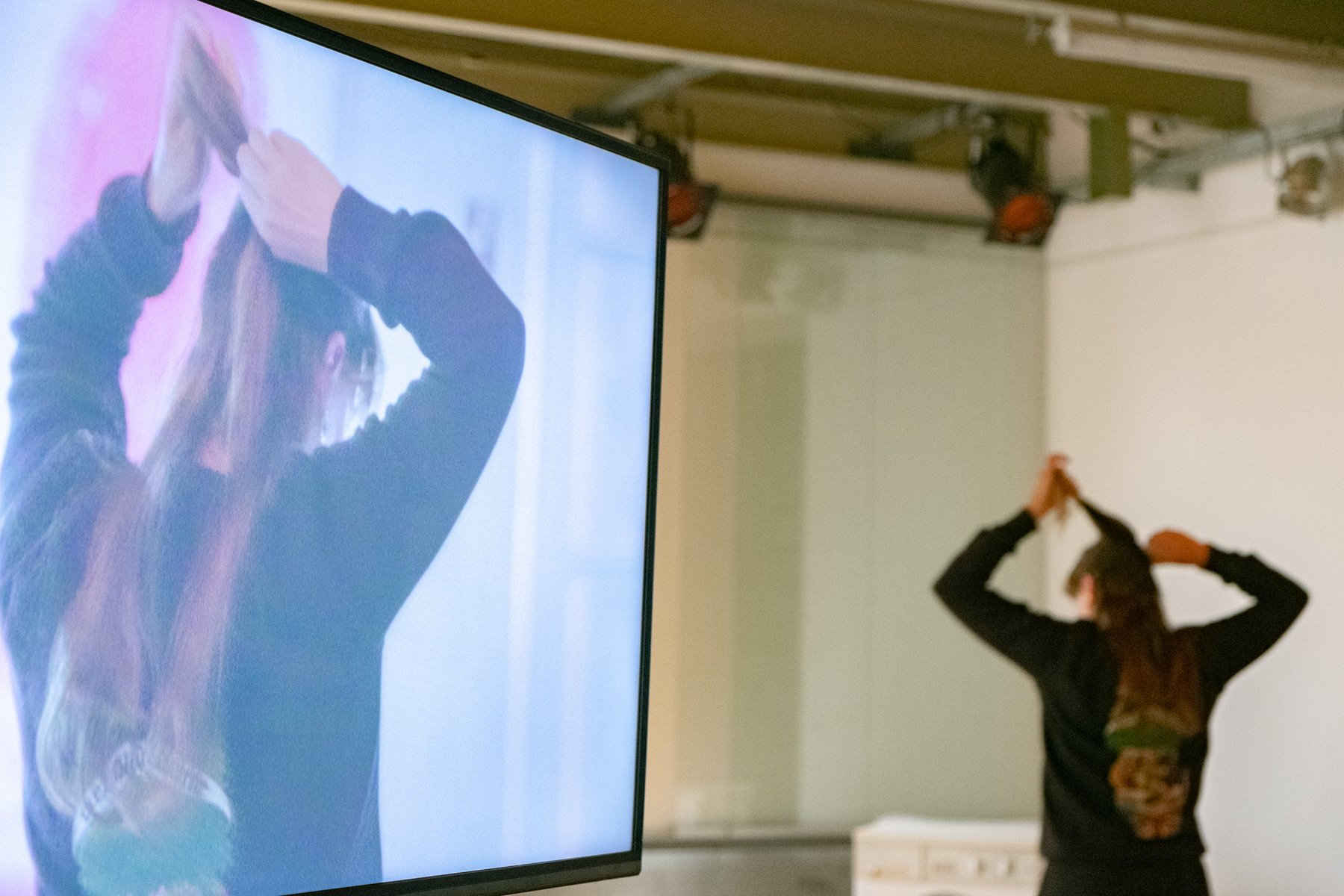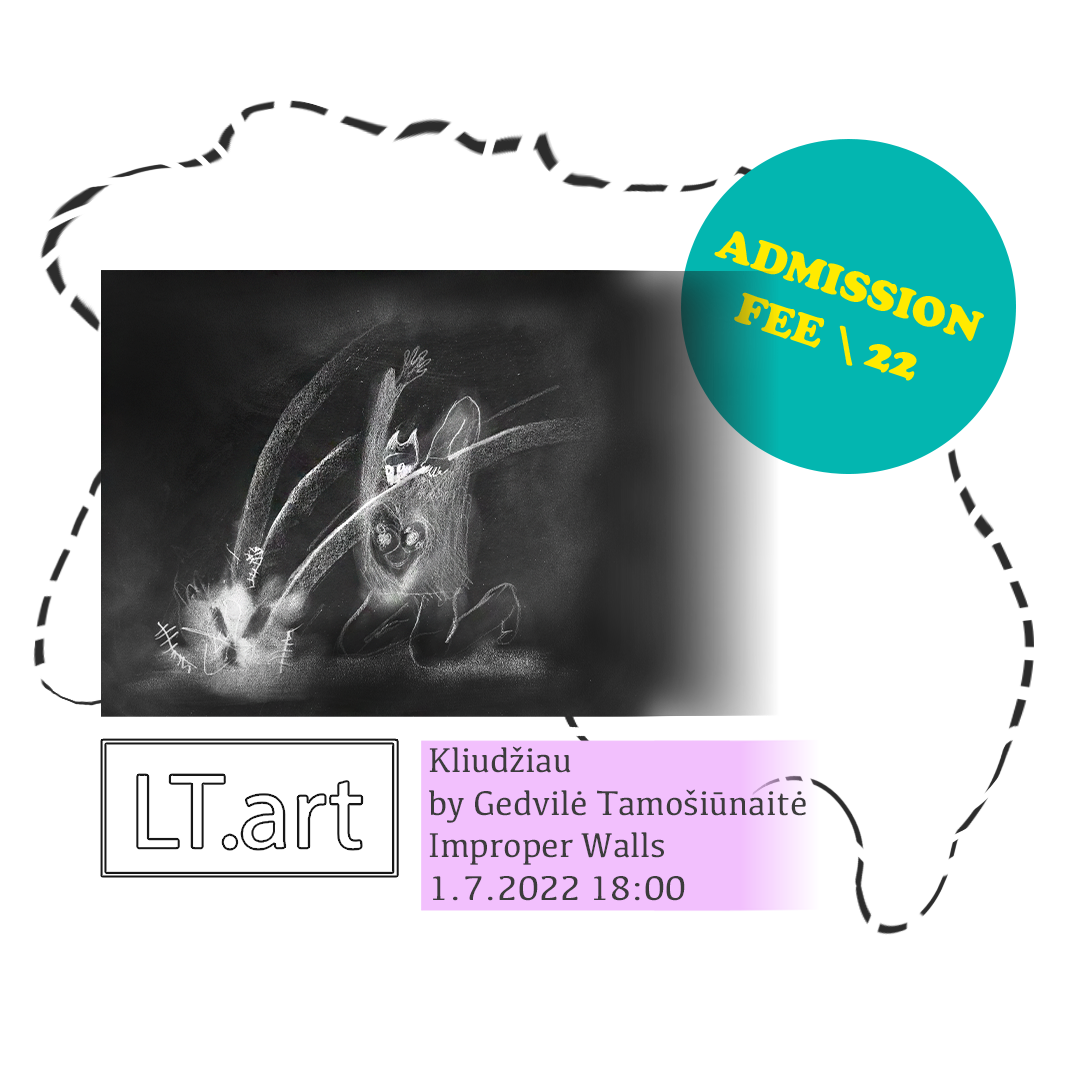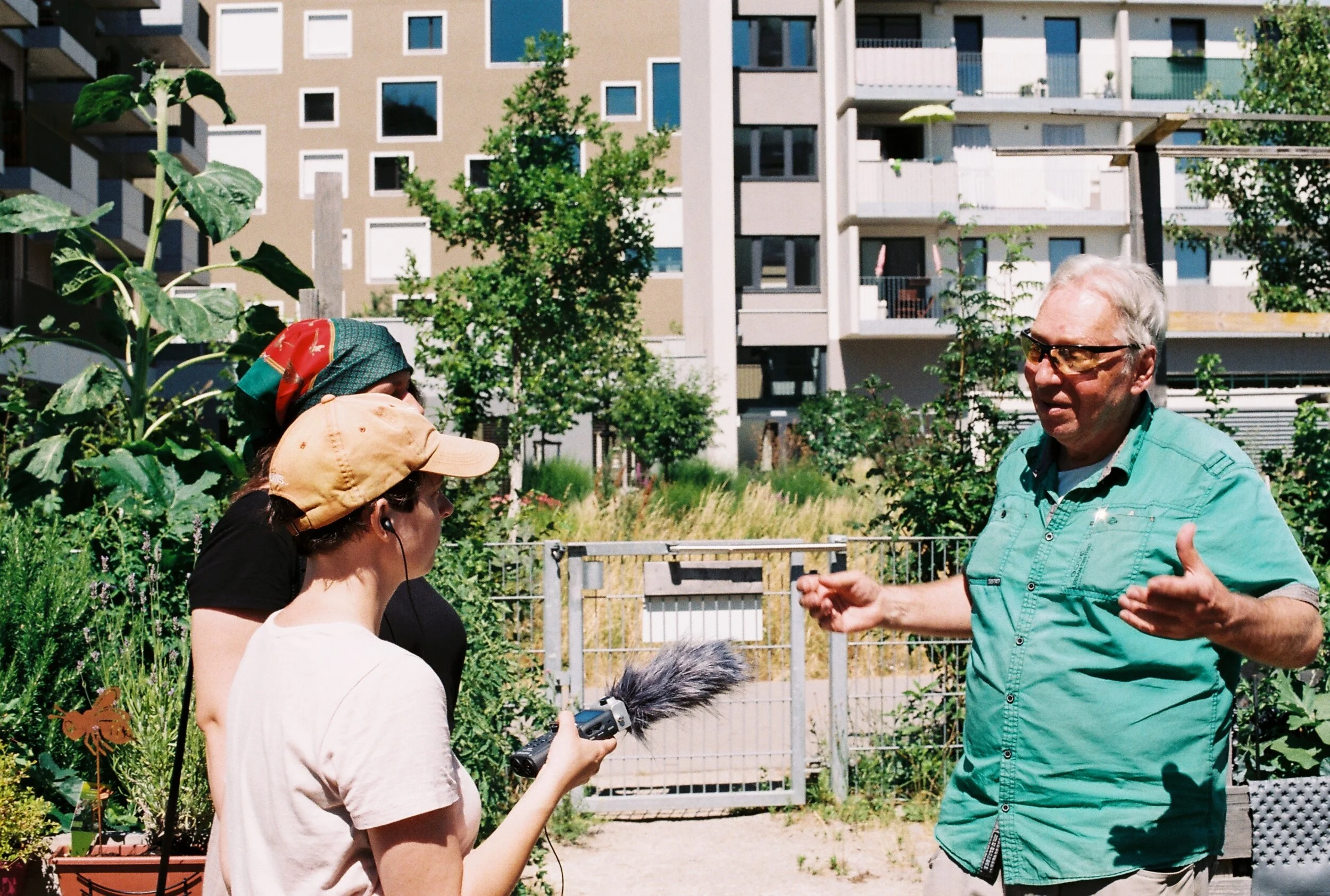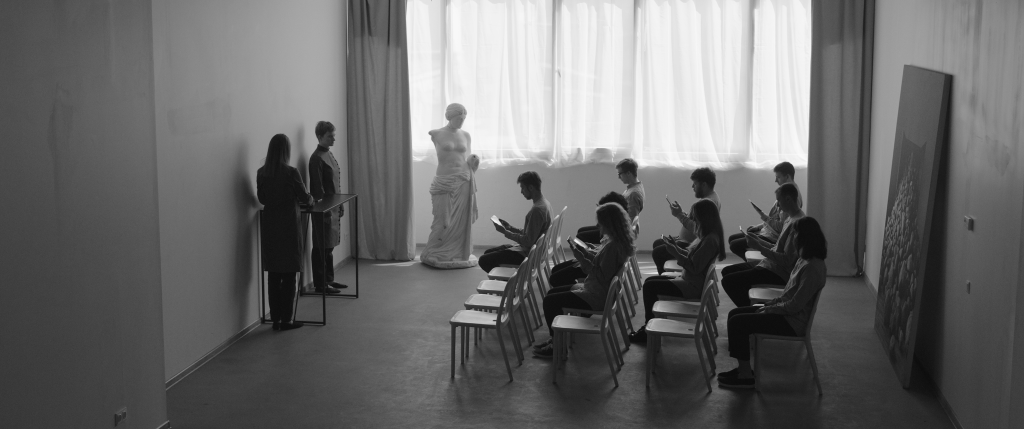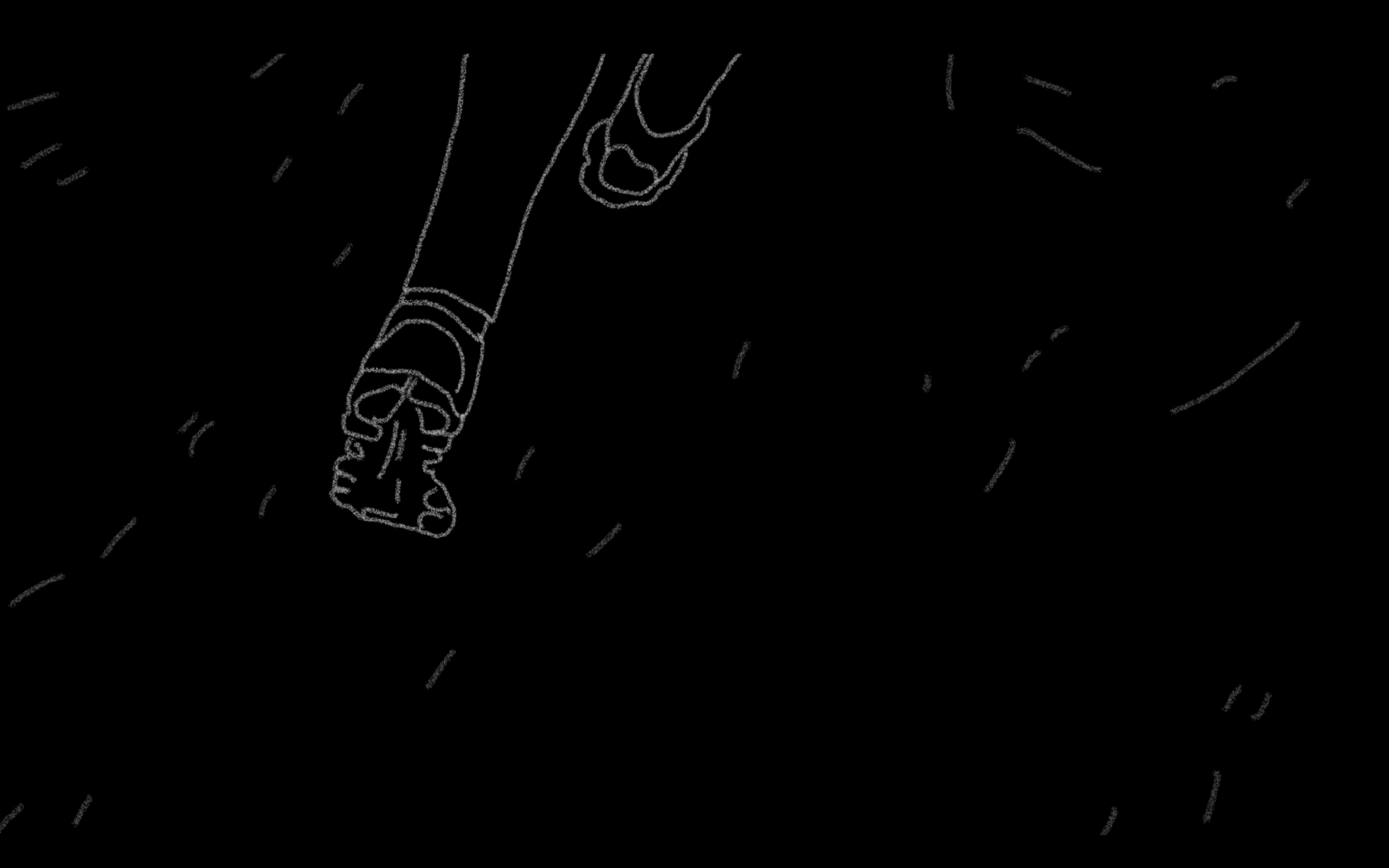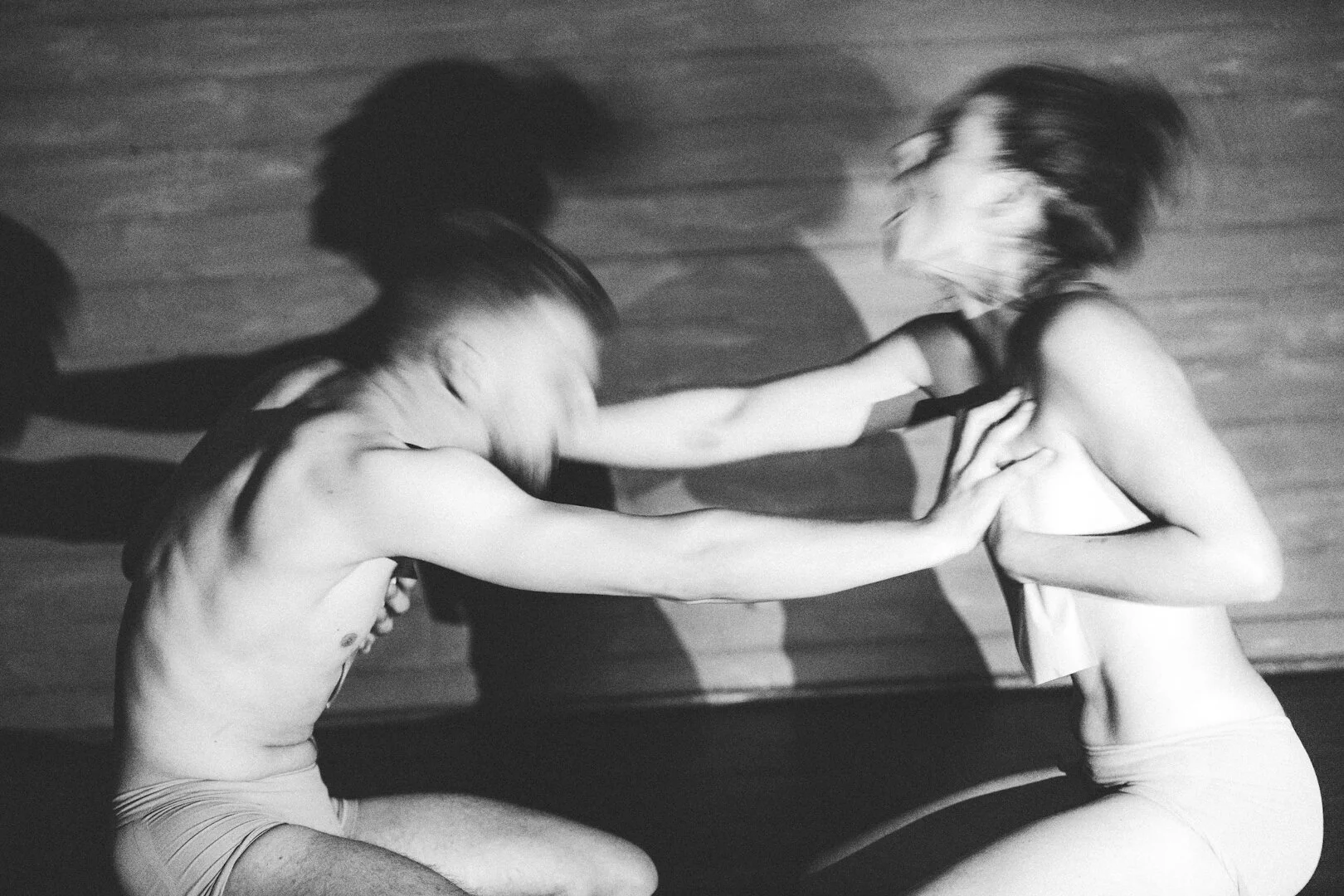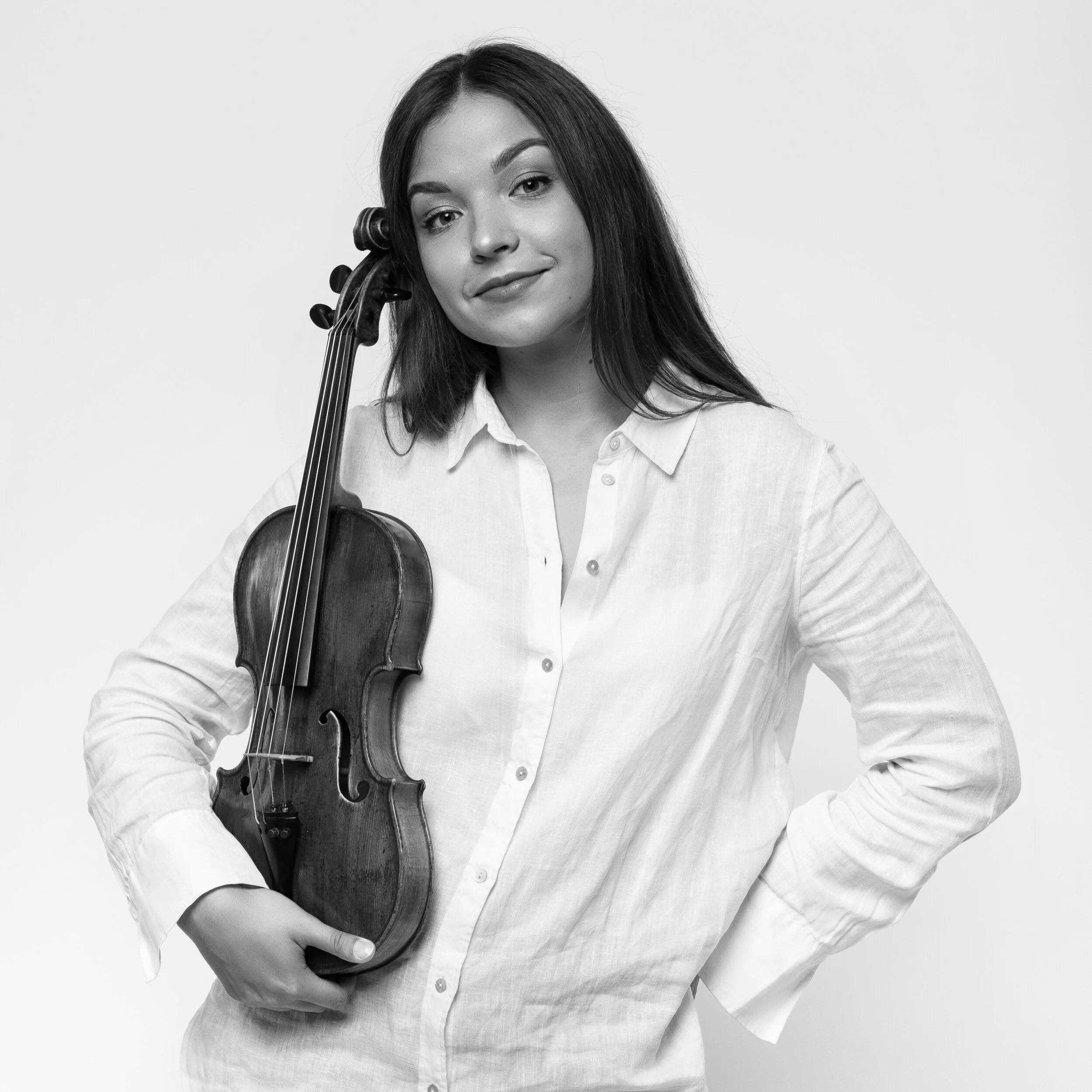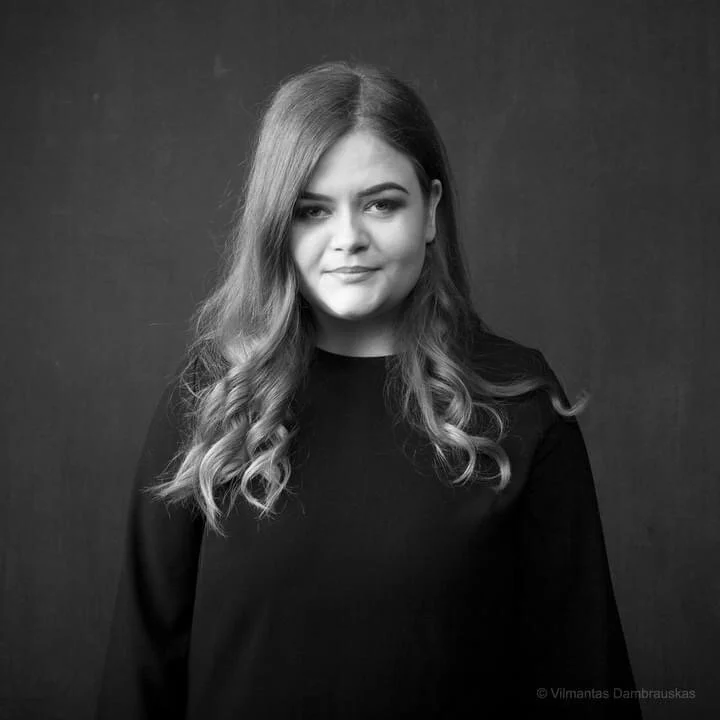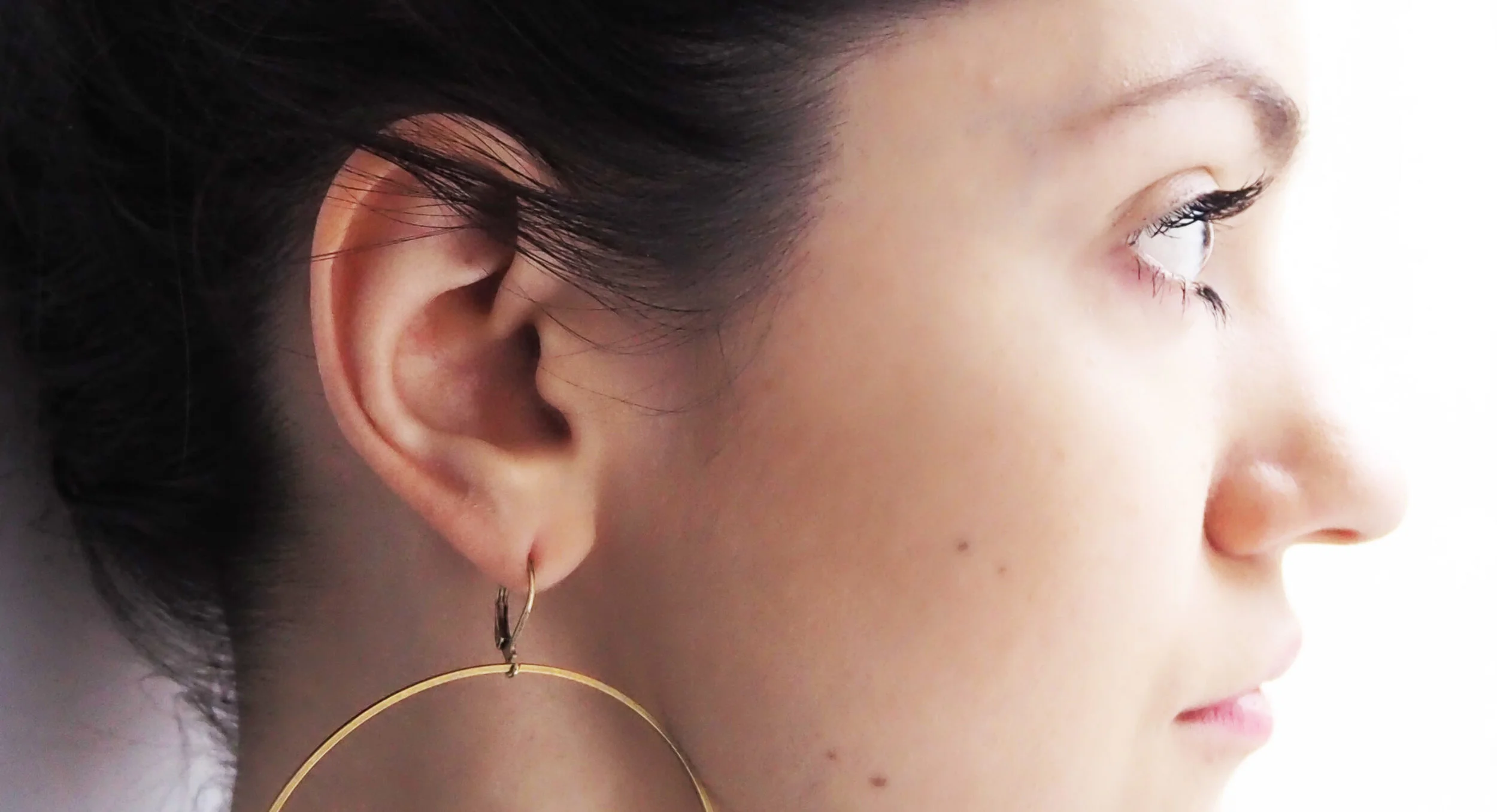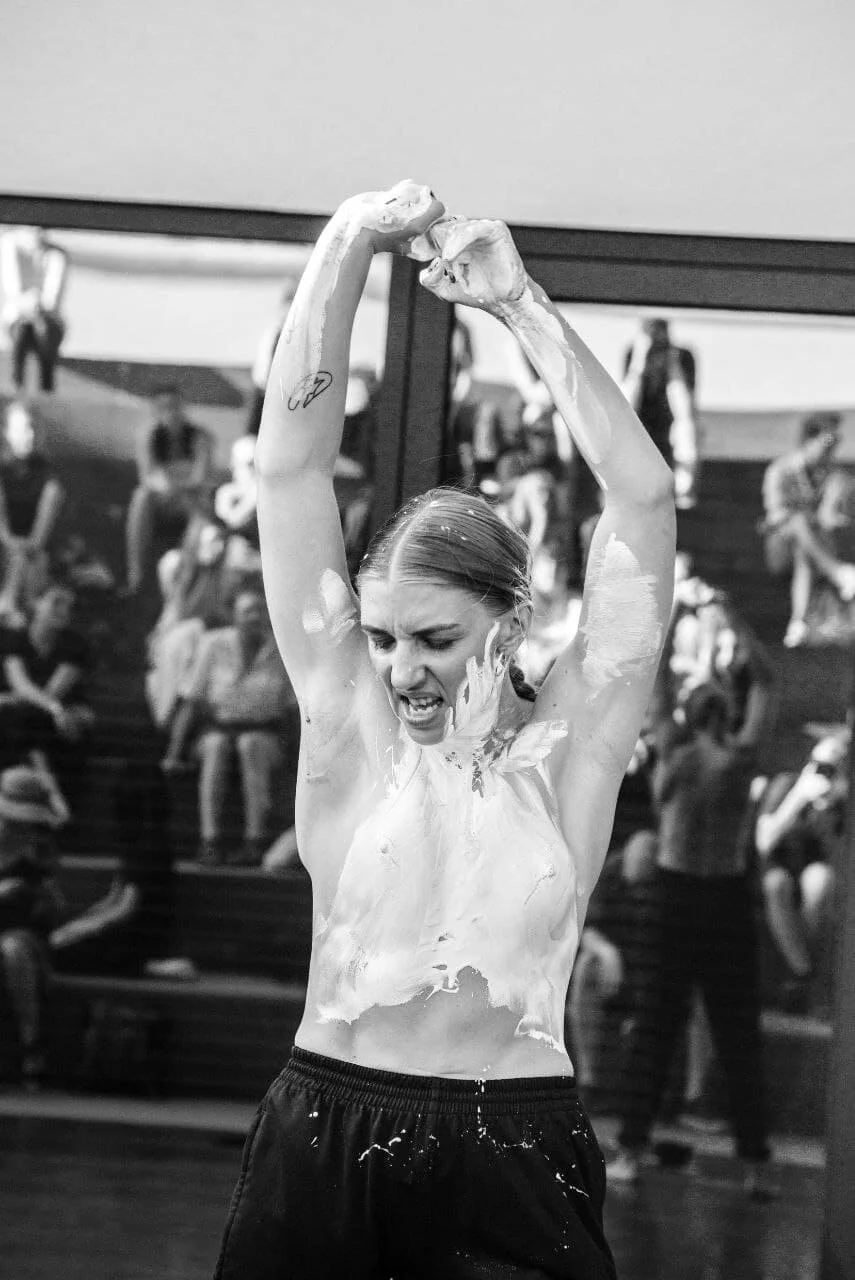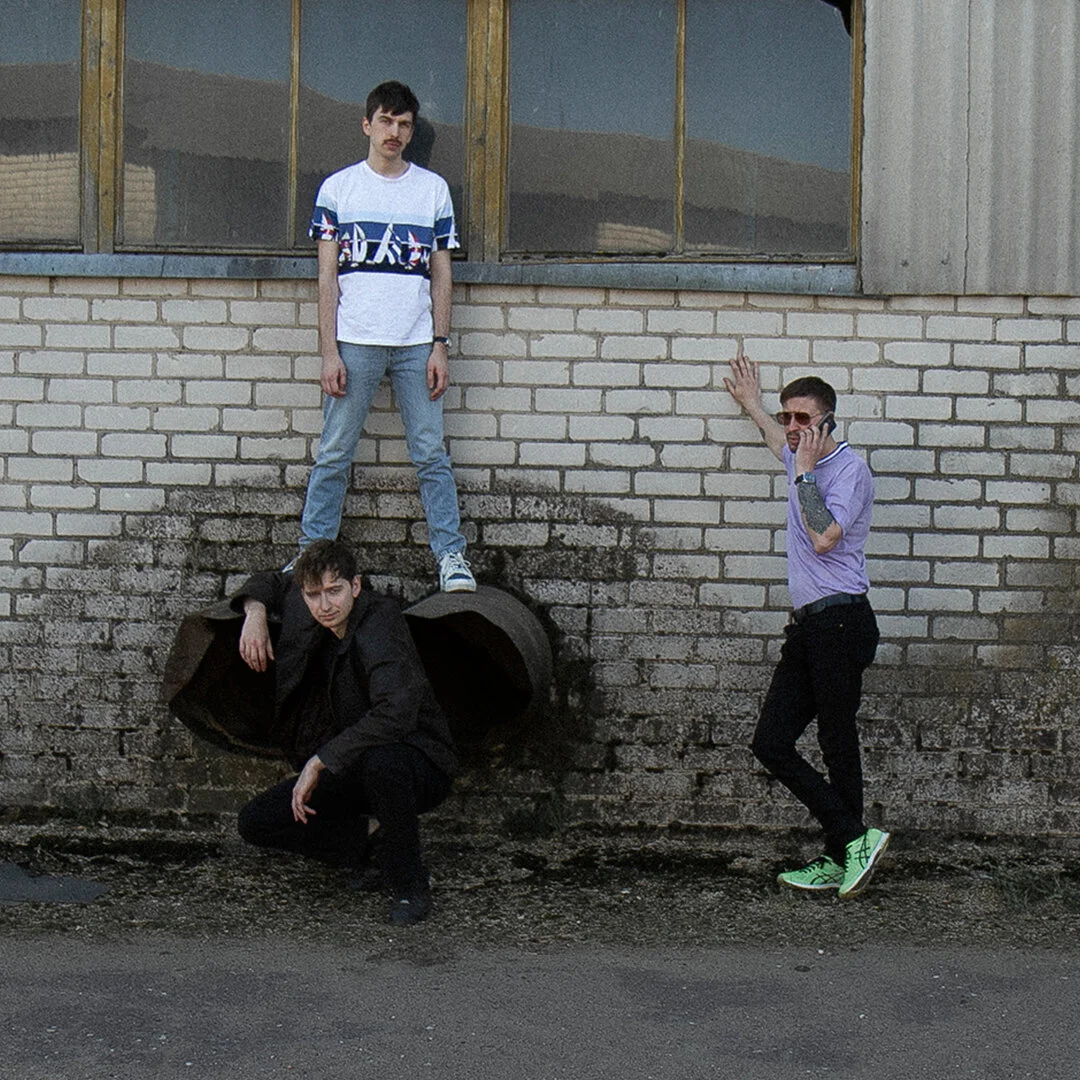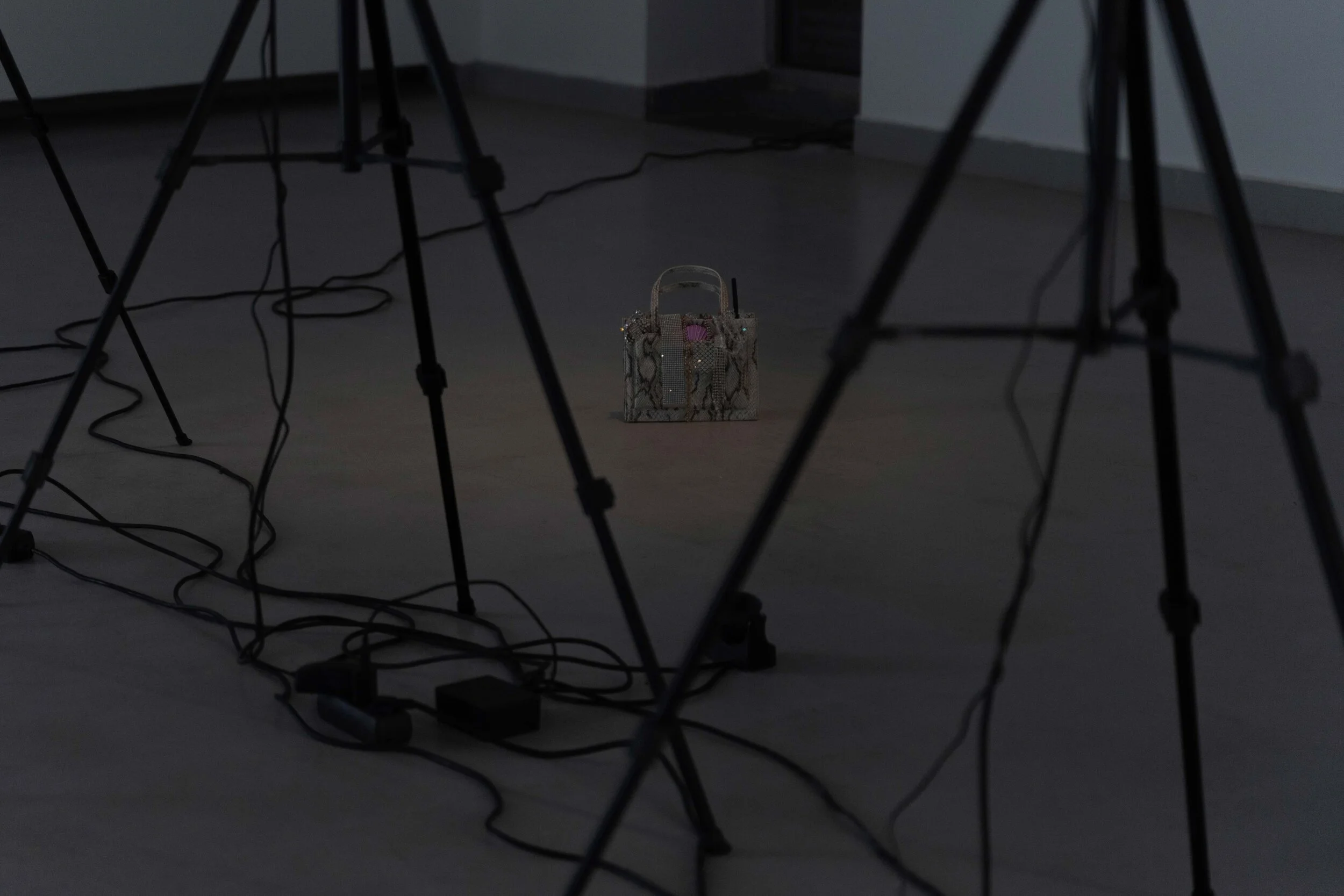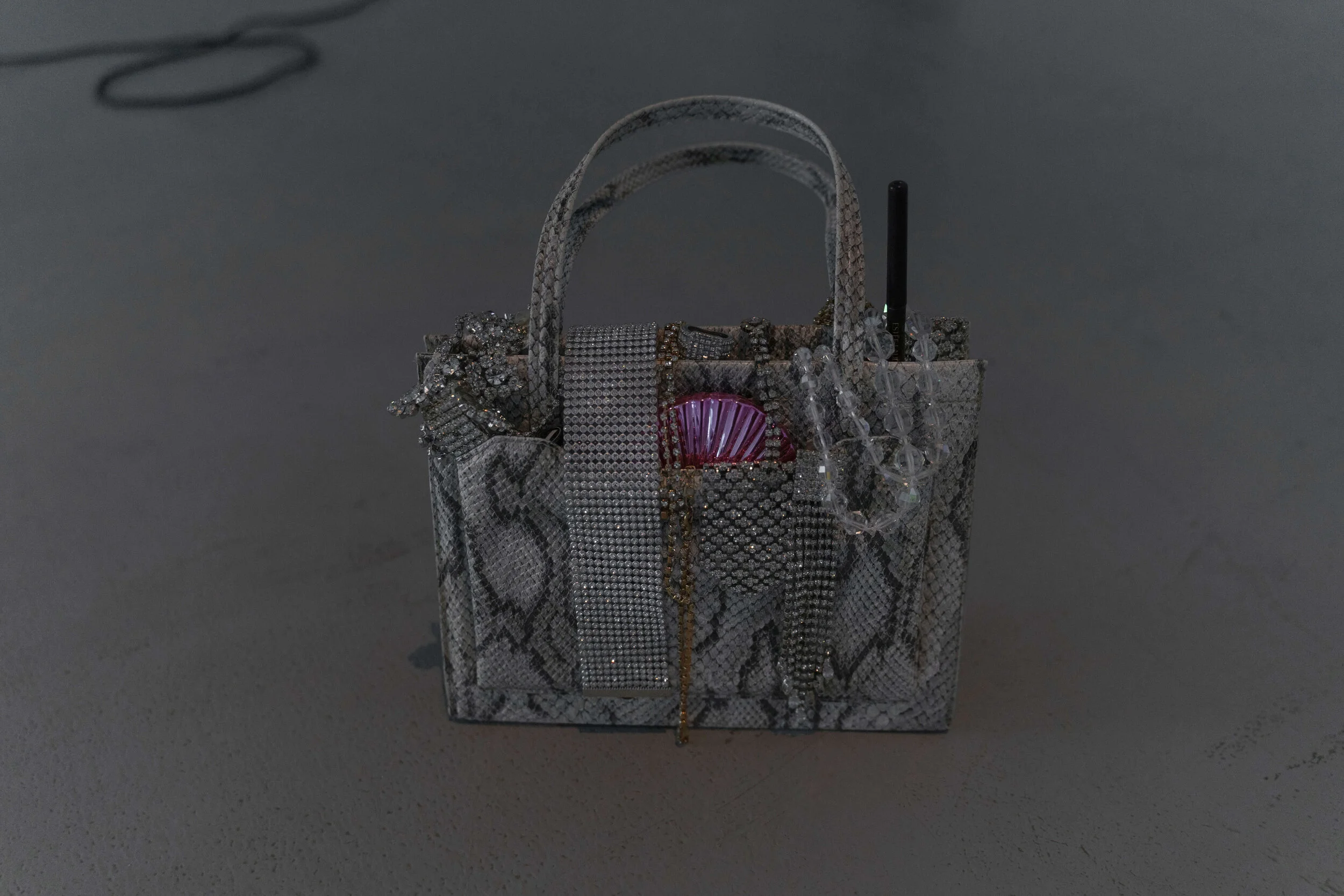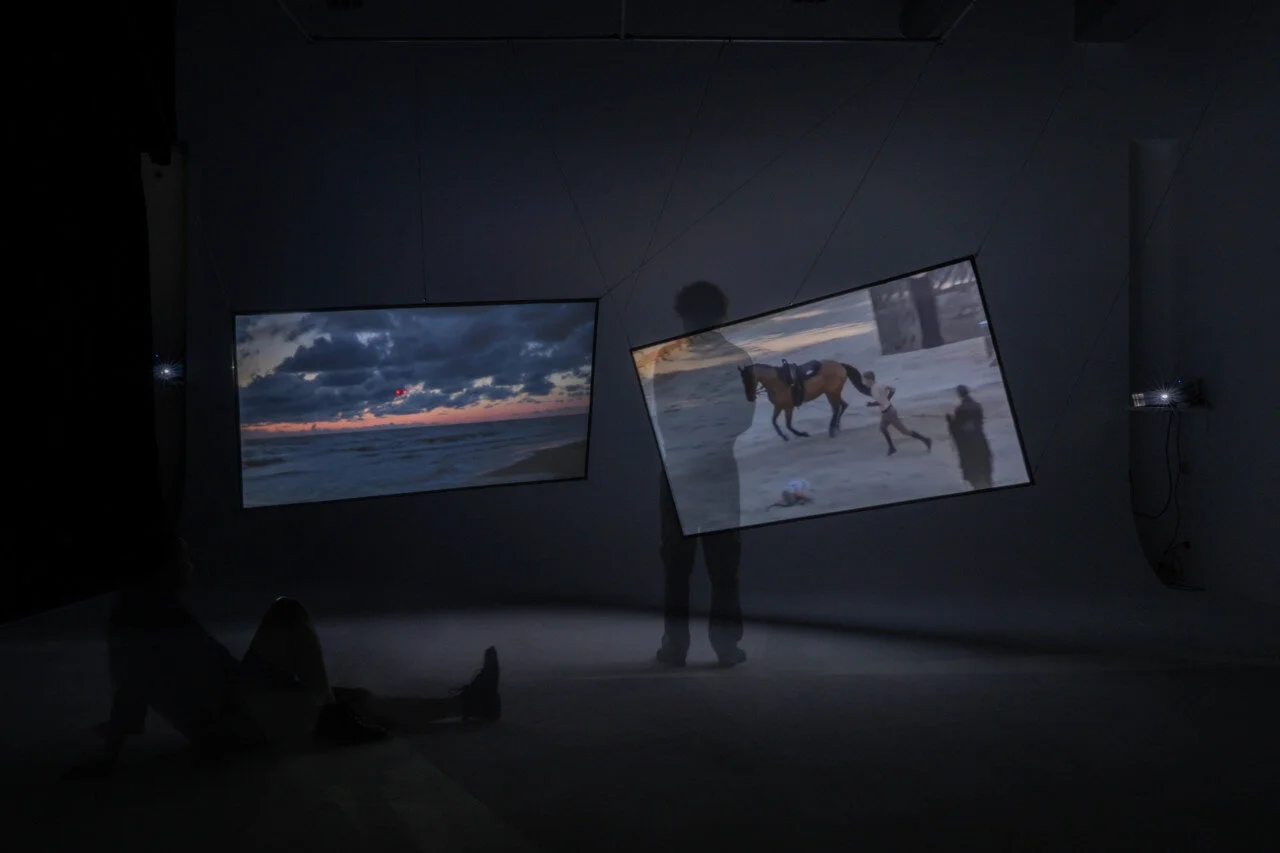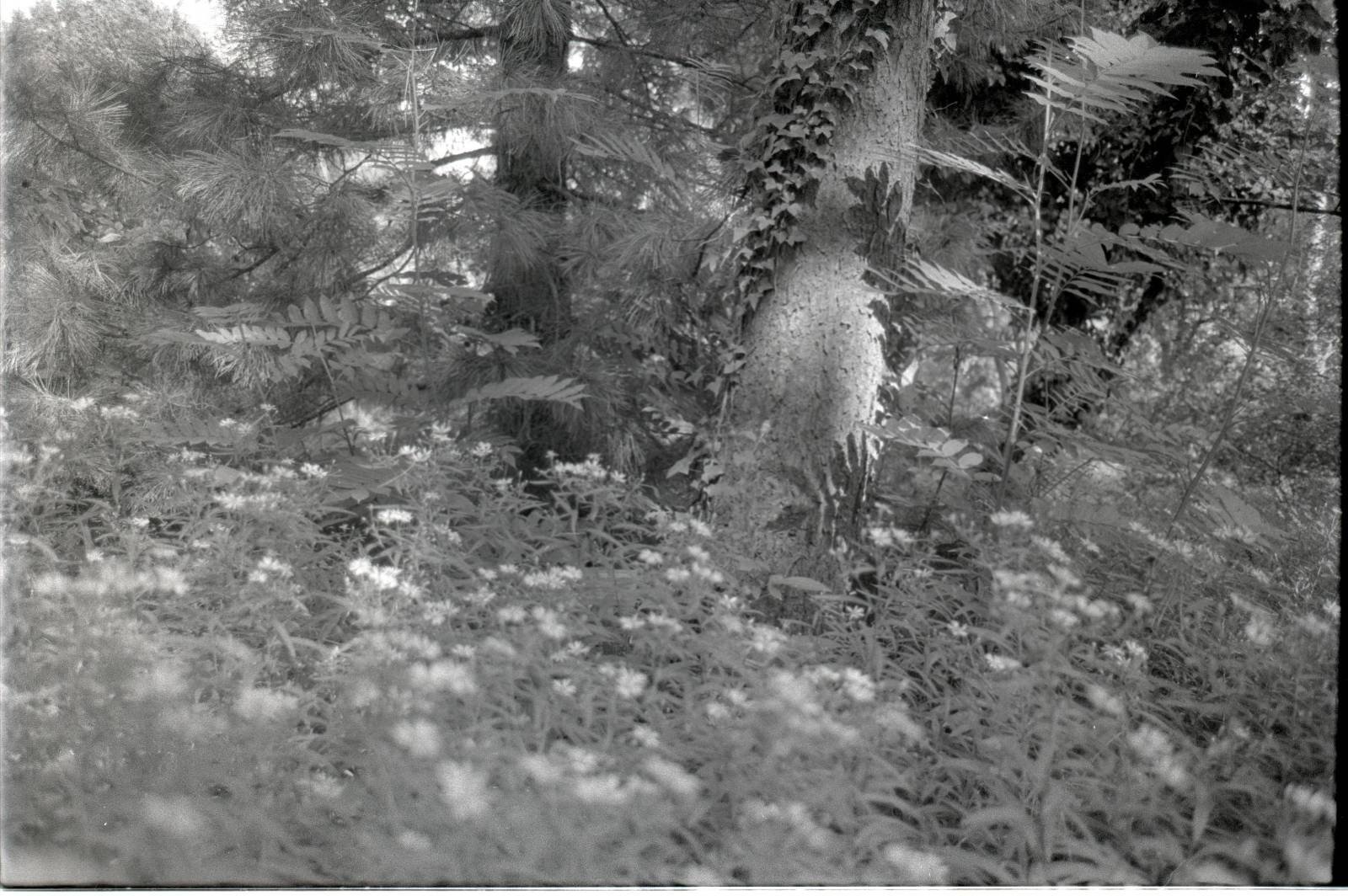
What's so scary about a falling tree
What's so scary about a falling tree
Collective listening & discussion
Kata Bitowt, Martyna Šulskutė
Audio story, 23’42’’
2022
Society by definition is the aggregate of people living together in a more or less ordered community. What if we were to broaden these boundaries to other species? Living in a capitalist economy, our culture is innately anthropocentric, constantly expanding our influence and power over the natural world, controlling the resources and deciding about the habitats of others.
What would we gain from another type of expansion? Expansion of perception, including other kingdoms of life into our society?
After a listening session of the piece 'What's so scary about a falling tree', we invite you to a further discussion with one of the episode's interlocutors, botanist Dr. Radvilė Rimgailė-Voicik.
We will further discuss the topics of broadening our concept of 'society', if we should or shouldn't compare animals and plants, why are we prone to categorise and label everything, and can we escape language?
Dr. Radvilė Rimgailė-Voicik - botanist, a researcher at Life Sciences Center, Vilnius University. Lecturing about plant diversity and its importance. Curious to learn and share challenging ideas about vegetal life.
Kata Bitowt is a sound producer and recording engineer based in Vilnius. Her main interest is in the music-noise-sound boundaries and how they can be manipulated. She creates electroacoustic compositions and audio stories, which is a great place to combine field recordings with synthetic sounds and sterility of the recording studio.
Supported by
Lithuanian Council for Culture, Stadt Wien, Litauische Botschaft in Wien

kin
“First we had Nature.
And then came the Environment.
Environment is the smoke humanity has put on Nature…
The term Environment has been hijacked by the forces
that are manipulating the world…for the basest of
motives: to maintain profits and power.”
(Gustav Metzger)
The environment is the circumstances, objects, or conditions by which one is surrounded. Is this ‘one’ also connected to these circumstances, objects, or conditions? Or rather - separated? If so, can we fix this severe conceptual and discursive error of the great divide and come together in a common organism, the liveliness of which can only be experienced through the interaction of its participants?
Our ideas of nature are culturally determined by rationalism and technical control remains the primary driver with regard to the construction of nature. And yet, what if a linear cognizance of culture is a purple screen for nature on which anything blue and green would be subject to removal? Perhaps, we should rethink reality, including our surroundings, beyond its objective characteristics, by perceiving it as a non-linear process of undefined laws and physics. And perchance by the elimination of the instrumental-rational approach, the tremendous harm to both human and non-human communities can be undone.
When perceiving the heterogeneous time in our contemporary view of nature, we might leave behind the utopian time and space and the conservative viewpoint. The change of perspective may not only deconstruct the dualism of human/non-human but furthermore explore a fresh look at the coexistence in the rather darker socially constructed co-habitat.
Artists
Kata Bitowt, Michael Dietrich, Oke Fijal, Jonas Hammerer, Kenneth Constance Loe, Martina Jole Moro, Julija Pociūtė, Jennifer Posny, Alfredo Ledesma Quintana, Paulius Šliaupa, Martyna Šulskutė
Curated by
LT.art Vienna
Jury
Margit Busch, Gedvilė Tamošiūnaitė
__________________
Opening evening
22.11.2022 6 - 10 PM
Collective listening & discussion “What's so scary about a falling tree”
24.11.2022 7 - 9 PM
Finissage
14.12.2022 6 - 9 PM
_________________
Supported by
Lithuanian Council for Culture, Stadt Wien, Litauische Botschaft in Wien

Silent film evening “Film Alchemist from Lithuania”
Silent film evening “Film Alchemist from Lithuania”

Lithuanian Shorts "My Fair Existence"
Lithuanian Shorts: My Fair Existence
The programme showcases five short films with a great artistic effort and presents strongly relevant and accurate topics about today’s society. With the help of a cinematic view Lithuanian filmmakers explore the emotional side of individuals and their state in the different communities. The selection of the films is full of attempts to adapt, desires to live within oneself and hopes to be recognised. All the films have already been successfully presented at national and international film festivals.
The selection is curated by the Lithuanian Short Film Agency “Lithuanian Shorts”.

OPEN CALL: KIN
Group Exhibition
part of LT.art Vienna 2022 program
KIN
OPEN CALL
Dedicated to plants

OPEN CALL: KIN (LT)
Group Exhibition
part of LT.art Vienna 2022 program
KIN
OPEN CALL
Dedicated to plants

Live music performance by “Teatre” (electronics, experimental, industrial)
Viktoras Urbaitis aka Teatre creates and plays alternative electronics, traversing across techno rhythmics, synth hybrids, wave melodies, and everything in-between. The Lithuanian producer and DJ has been actively releasing material since 2018 on cassette, vinyl and digital formats on Lithuanian and international labels, debuting with a 12'' vinyl release on Lux Rec in 2021.
Photos by Maria Belova

Dance performance/concert "Dance for washing machine and mother" by Greta Grinevičiūtė
Dance performance/concert "Dance for washing machine and mother" by Greta Grinevičiūtė.
During the performance Greta will invite the audience to travel together through her past and present memories and to visit an installation - a dream that can no longer be dreamt.
Lithuanian choreographer and dancer Greta Grinevičiūtė, who started her 2018 creative triptych with the performance Dance for a vacuum cleaner and dad, presents her second work, which deals with family ties. Grinevičiūtė works with the creator, performer and contemporary dance teacher Andrius Katinas, who will be represented in the performance by projections recorded in Helsinki or by a voice that lives in phone calls. Her work at a distance during the quarantine not only retained the idea of performance, but also gave it a new form, reminiscent of the dancer's relationship with her father.
Photos by Maria Belova

Exhibition “Kliudžiau” by Gedvilė Tamošiūnaitė (together with Pavle Nikolič, Karolina Janulevičiūtė, Rūta Vėbraitė)
I got it. The spinning camera zooming out in circles above an avatar lying on the cold
virtual ground. Reload.
I got it. Empty streets of another doomsday city seen from a window of an Internet café.
And glitching dripping icicles from gutters, turning into fuzzy stray dogs as they fall
down.
I got it. Growing up as much in computer games as in your house, your room, your bed.
I got it. A glistening arrow held in suspense versus a corrupt 3D-printing file for a neo-
puukko that freezes every printer mid-job.
I got it. So young yet so shrivelled!
Exhibition “Kliudžiau”
by Gedvilė Tamošiūnaitė (together with Pavle Nikolič, Karolina Janulevičiūtė, Rūta Vėbraitė)
Vernissage & music performance by Alexandros Lousos: July 1, 6-10 PM
Exhibition: July 2 - 29, Wed - Fr, 3 - 7 PM
Improper Walls is pleased to announce Kliudžiau by Gedvilė Tamošiūnaitė, her first solo project in Austria. The exhibition features new productions by the artist as well as works created in collaboration with photographer Pavle Nikolić, illustrator Rūta Vėbraitė and fashion designer and artist Karolina Janulevičiūtė.
The exhibition title Kliudžiau, originally a title of a story by 19-century Lithuanian writer Jonas Biliūnas, functions as a phonetic trope, an onomatopoeia, its pronunciation reminiscent of cutting, hitting, a physical material encounter.
Kliudžiau presents new photographic series by Tamošiūnaitė that continue her research into the present overlaps of physical and digital realms. The exhibition explores different areas and states of these transitions, and the forms they take in individual's social and emotional being. Among them is the topic of adolescence as a period of physical and emotional change where the notion of playfulness and naive games may turn into acts of aggression or unsolicited violence. This aspect is elaborated through visual and conceptual clues to gaming and play, and the relations between violence and the sense of guilt, amplified by the presence of digital simulation and stimuli that have become coming-of-age issues during the past decades.
The reoccurring leitmotif of these photographs, set in ice-like blocks of transparent epoxy resin, is a knife designed in a sci-fi style that the artist acquired during her research in preparation for the exhibition. The knife's iridescent blade gives a seducing aesthetic quality tothe object of aggression and cruelty. Through slightly distorting 'lenses' of epoxy resin, the shots of the object deceitfully appear not as photographs but rather as digitally rendered images, bringing back the physical knife to its places of origins, mainly to computer games like
"Mortal Combat" or other fantasy-cum-fighting video games. Other agents in the photography series – a boy, an Irish wolfhound, a webbed cluster of moth larvae – allude to various states of morphing, either as temporary states of change, or set conditions of hybridity.
Fond of collaborative practice, Gedvilė Tamošiūnaitė chose to invite a few collaborators to respond to the topics of her research and photographic practice; the invitation has become a launchpad for collaborative works also presented in the exhibition. Vienna-based photographer Pavle Nikolić responded to the invitation with a photographic work of his own, introducing new perspectives to the exhibition. The two photographs depict almost unrecognizable objects, which are, in fact, ice skates. In the exhibition, the images grasp the tension between the sharp object, the blades, and the activity of leisure and pleasure – ice skating.
The illustrator Rūta Vėbraitė, lives and works in Vilnius, conceived a drawing that is presented in a sculptural setting, an intricate installation that translates the idea of a liminal state between hiding, as in keeping a secret, and disclosing or uncovering. The illustration is inspired by drawings of a young boy that unintentionally, if not subconsciously replicate the digital user interfaces of video games.
The collaborative work with the Lithuanian fashion designer and artist Karolina Janulevičiūtė takes two different forms. The first work is a sculptural object that imitates the appearance of a fashion item, a handbag. Inside the work, a 3D-printed model of a knife is set in a nest-like setting, seemingly made by an animal, an insect. The sculpture manifests a hybrid form between an article of industry and a shape found in nature. The second collaborative work introduces a spatial change inside the exhibition space. A curtain design is printed with UV- sensitive dyes. It physically translates the concept of threshold and the moment of transition. This separation does not only divide the rooms but also controls the interior light, casting it in midnight-blue shade or imitating another temporal setting, shifting throughout the entire exhibition period.
(Text by Ignas Petronis)
ABOUT ARTIST
Gedvilė Tamošiūnaitė's (b. in Lithuania) work focuses on ways of transferring contemporary human emotions and feelings into visual digital culture and non-verbal codes. Taking the former as an emotional collective entity - non-organic, bloodless, and painless - she aims to detect gaps that expose it to reality and allow for influence. Her prior artistic experience led to an expanded creative field situating her commercial and personal work between photography, video art, and art direction.
gedvile.com
_
Supported by Stadt Wien & Lithuanian Council for Culture

BAL project kickoff conference
The aim of the BAL project kickoff conference is to research the development of art and culture in the Baltics and the Balkans regions after the end of the respectively socialistic regimes in both regions and establish a network between art and culture institutions.
PODCAST
In July a journalist’s collective from Lithuania called NARA came to Vienna to research and understand the city's successful and complex social housing system. They are creating a podcast episode for which they have talked to experts and people living in different districts and delved into the ways that they use a variety of models that the system provides: from the apartment block syndicate to communal gardening. The episode will explore the interconnection between urbanism, nature, and communities inhabiting them.
The podcast will be published on http://nara.lt/en platform.

SATELLITES OF THE SELF
An interactive audiovisual performance
The growth of an identity is a constantly dynamic process, which is formed by external influences on the self. Thereby the self-reflection by digital and social media plays an increasingly important role.
On our screens we are used to seeing the fragments of a fast-paced and volatile construct. Characters are optimized, transformed and flattened. How can this selective and fragmented image of the self get more complex and comprehensive, so that it goes together with the fluid and procedural character of a human identity?
This question is the starting point for a sound based performance. The virtual staging of identity is compressed, scaled, trans-formed and critically questioned in a generative setting: The movement and the voice of the performer are captured by a webcam and a microphone and represented in a live-stream. Thereby the stream’s video image is transformed depending on the input of the performer's voice. The result is a distorted duplication of the performer, which is live projected back on her body.
Like this a constant interactive process between the real performer and her virtual double is provoked, that can be directly comprehended by viewers, who themselves get part of the process for example by getting captured by a camera movement.
By integrating the viewers into the live-stream the border between watching and being watched is dissolving. In our performance the video reacts to the pitch of the voice and according to this project's particular images. Going further, we can reach the point where not a human voice at all, but some wildly transformed sounds would come out from the performer’s mouth, thus achieving not only depersonalization but even dehumanization of the performer.
Tickets: free entrance
(limited seats available, please register: contact@ltartvienna.com)

LITHUANIAN SHORTS: CINEMATIC CONNECTIONS
The program “Lithuanian Shorts: Cinematic Connections” holds 6 films with great artistic and cinematic effort, and presents a spectrum of subjects associated with interpersonal-social environment-technology relationships. This program will guide you through the world of the heartbroken, artificial or very distant people, the world of nature full of fear and unfairness.
Films of the program have already been successfully presented at national and international film festivals and won numerous awards.
The selection is curated by Lithuanian Short Film Agency “Lithuanian Shorts”.
Total duration: 83 min.
Tickets: ADMIRAL KINO
AMMU
dir. Karolina Nadzeikaitė
fiction, 2021, 24’
In the near future, after another painful break-up, a young woman named Alex applies to an institution where people are taught to live in solitude. During one of the training phases, Alex is introduced to a young employee named Kaste, whom she becomes very close with. However, the essence of the training is to unexpectedly and firmly develop the ability to live alone.
IEVA
Dir. Domas Petronis, Vytautas Plukas
fiction, 2021, 14’
THE BEARERS OF MEMORIES
Dir. Miglė Križinauskaitė-Bernotienė
experimental, 2020, 13 ‘
With every moment – one more memory. But memory sometimes goes blind and what is left becomes hazy.
MY BIRTH
Dir. Eglė Davidavičė
animation, 2017, 3 min.
“My Birth” is a confrontation with the fear of nocturnal forests, its dwellers and deep darkness.
ONE LIFE
Dir. Marija Stonytė
documentary, 2019, 19’
On a private farm, butterflies are raised only to be sold as props for a classical concert performance. We follow one of these fragile creatures on its short-lived journey to the music hall as it struggles to survive ‘civilization’.
COMMUNITY GARDENS
Dir. Vytautas Katkus
Fiction, 2019, 15’
It is a story about a cold relationship between a father and his son. Their bond, plagued by indifference, disintegrates completely.

VIRGIN CONCEPTIONS
Apeiron Theatre's premiere of “Virgin Conceptions” was inspired by a recent article in the international press about a female shark that had given birth in the Cala Gonone aquarium on the island of Sardinia, where she had lived for more than ten years with her only companion, a female shark of the same species.
According to the researchers, the phenomenon of parthenogenesis occurs in animal species that have a very high mortality rate or have had difficulty finding a mate of the opposite sex, such as aphids, bees, ants, spindles, etc.
The creators of the performance ask the question "what happens when nothing is born?" in a broader sense - when ideas, passion, children, revolutions, new life forms are not born? But at the same time - can it be that something is born when nothing is born?
The actors have chosen a white sheet of paper as their main instrument - a kind of tabula rasa, with plenty of space for something to be born, but here a mother of five children interjects: "You know, it will be very difficult to give birth on A4, because the legs will creep out of the edges anyway".
Directed by Eglė Kazickaitė and Greta Gudelytė
Actors: Ričardas Bartašius, Greta Gudelytė, Eglė Kazickaitė.
Costume designer: Erika Jankauskaitė
Music by Grid707
Tickets: free entrance
(limited seats available, please register: contact@ltartvienna.com)
Apeiron Theater
is a professional theatre founded in 2012 by two young directors Eglė Kazickaitė and Greta Gudelytė.
The concept of “apeiron” although difficult to understand, can, for many, become the key point entering the world of Apeiron's theatrical performances. These performances include elements of post-dramatic, surreal, absurd, social grotesque, other theatrical styles and open up a wide field of interpretations (as intertextual dramaturgy practically does not set any boundaries for perception). Apeiron is an indefinite limitless being. According to the Greek philosopher Anaksimander, the apeiron is an eternal, all-encompassing, all-controlling origin that has no beginning and is endless, which itself does not change, only its forms varies.
The Apeiron Theater avoids monotony, consistency of time and action, too many contexts, links with philosophical concepts, poetry, but always gives priority to thought. The audience plays very important role and is understood as the co-author of the performance, which is also encouraged to see, interpret or understand the performance in its own way.
Creators of the Apeiron Theater analyzing society in psychological, sociological aspects, observing the reactions of the spectator, the prevailing theatrical forms and the possibilities of their variations, experimenting with the language and the theatrical expression of dramaturgy, develop the idea of discursive theater. During a short lifetime, Apeiron Theater became one of the most intriguing theaters in Lithuania.
“Provocative“, ”experimenting“, “boundary-breaking“, “brutal“, “uncomfortable“, “chaotic“, “irrational“, “amorphous“ – different epithets are used to describe the Apeiron Theater. Theater lovers and critics do not agree on what the Apeiron Theater is: "ambivalent, its theater language, its spectator-looking theater" (Andrius Jevsejevas), or "graphomania claim to post-modern theater" (Simonas Norbutas).
The creators of the Apeiron Theater do not try to please the proponents of the particular theatrical conception, theory or ideology of any particular concept, nor seek to become a "true" theater. They use specific dramaturgy, visual and acoustic expression, do not identify with the theatrical tradition of "passing" 20th century and create their own vision of theater instead.
VIOLIN / ACCORDION / ELECTRONIC
Contemporary - classical music concert
Guests:
Elena Sverdiolaitė – soprano
Bence Temesvári – cello
Elisabeth Müller – accordion
Lukas Lützow – live sound & electronics
Program includes pieces by Šataitė-Survilienė (world premiere), Eimold, Reich, Scarlatti, Galliano, Šenderovas, Lithuanian folk songs and improvisations.
Seat reservation – veronika.zacherl@a1.net or 0699 11441567 (free entrance)
2,5G rule applies to our concert: vaccination / recovery / PCR-test prove is required.
NEBULA
Violin, pre-records and electronics
2021
Elena Šataitė-Survilienė, 2021
www.elenasataite.com
The idea behind the work emerged naturally from current life on its own, which brought much confusion filled with anxiety. What can help is making a sound with the thought in mind ahead of time? This rather flair for the new beginning, an allusion to reborn. The Latin name Nebula (themist) in many world traditions is often considered as the primary medium that existed before the creation of the world. Whereas, the fog in many traditions can be understood mentally, spiritually, and at other times associated with thoughts, contemplation.
The piece is 10 min in length, structurally controlled, but still evolving into a meditative atmosphere, written for one player who symbolizes the archetypal primacy who is looking for a dialogue with something new not yet experienced(records, electronics).
Elena Šataitė-Survilienė is originally trained in music composition at Lithuanian Music and Theater Academy (LMTA), specializing in Film, TV and Multimedia (BSc, 2015). She was a recipient of the state fellowship in 2011 and LCU Young Artist Award in 2016. In 2017, her little symphony Eremos was included in compilation of Anthology of Lithuanian Art Music in the 21st Century, by American music journalist Frank J. Oteri. Elena is a well-recognized composer for theater performances at the State Small Theater of Vilnius led by Rimas Tuminas, and an active member at film scoring workshops including ‘Summer Media Studio’, ‘Festival International du Film d’Aubagne’. In 2016 she moved to Helsinki, where she took private master classes at Sibelius Academy. In 2018 Elena moved to Vienna, where she was addmitted to theVienna Music Institute (VMI). In 2020 she received the status of Artist Creator appointed by Ministry of Culture. At the same year she was granted for a scholarship by the Lithuanian Council for Culture for the creation of new musical works. In 2021 Elena was a music creator at Vilnius Film Festival (“Kino Pavasaris”) for visual identity.

HANDS UP
Agnietė Lisičkinaitė
HANDS UP is a physical body posture that recurs in many different cultural, social and religious contexts, capturing the multi-layered nature of its content. The context I have chosen is protest culture.
In Lithuania, protest is identified with the strongly romanticised Sąjūdis era, but in the context of recent world events, from a sociological perspective, it is worth questioning the thesis of protest culture as a good in itself. Unconstructive protest is a convenient form for anarchy to take root.
The choreographic performance inspired by protest culture questions the fragile distance between surrender and submission, reconciliation and resistance. It raises the question: what kind of Protest Baby will we raise - as a symbol of freedom or as a symbol of aggression?
This is an investigation and, like one truth, there is no one answer.
Photo by Dainius Putinas

ZVERUNA
Zveruna‘s neon reality and macabric storylines bring sweet colors and tension of characters in an entire world of ancient myths and todays times. Neon lights are an allegory of consumer society, pleasure, trance, dazzling, gas station and its signboard made of shiny metal, a gang of glow-worms in a spaceship. The old European myths transferred into modern times and our daily situations. It is a manipulation with archetypes and the collective unconscious which is encoded in ancient myths and moves into contemporary mythology.
PLACE-PERSON STORY
NARA is a space for long-form multimedia journalism in Lithuania. NARA team arrives in Vienna to be a part of the LT.art festival. Our mission is to find a place-person story that connects culture, urbanism and sustainability. Can Vienna bring us out of the box imagining sustainable city development, community housing and daily commuting? We will be back to NARA podcast with answers from one of the most sustainable cities in the world.

WITHOUT LETTERS
Without Letters is an experimental Lithuanian band, exploring the landscape of off-kilter electronic, dance and guitar music.
Photo by Saulė Bliuvaitė

BUY ME, GOD
NANCIE NAIVE
The space of "Improper Walls" echoes with the sound of high-heels. Elegant steps seem to float in the air – she walks on earth just the way she walks in Heaven. She manifests as contemporary Mary, – a common girl with the name of the Mother of God's. She's now been blessed. Her body becomes your daily bread, your earnings, your money. Her body is the indulgence of the 21st century, a sacred currency. Nancie redeems her sins with her own self, she sells herself, bodily sacrifices to God. She is the lamb, the snake, she is a divine coin. Her phantom foretells the misfortune neither of future, nor of past, but of today – a peculiar, distant existence and a careless death of ecclesiastical faith.

I AM NANCIE
Nancie Naive
Nancie Naive and her life become a product offered to the public. In “I am Nancie”, she
proposes a self-expansion, a reflection of a pop star in a camera lens. The star and the camera meet in battlefields: photo studios, city streets, the Improper Walls gallery. It is a Nancie Naive-advertising campaign created by Nancie Naive herself, in which she is a work of art, a product, a commodity, and a poster showing how things become important in the light of glory, even if they are not.
Dates:
July 2, 5 - 10 PM
July 3, 3 - 7 PM
July 7, 3 - 7 PM
July 8, 3 - 7 PM
July 9, 3 - 10 PM
July 10, 3 - 10 PM

WE ARE NOT SO FAR AWAY, IT'S JUST WATER
Gedvilė Tamošiūnaitė
Artist aims to explore human loneliness and the deep desire for an emotional interspecies connection; be it with AI, other civilizations in the universe, wild animals, or nature. She is fascinated by the human projection towards AI and other digital imaginary products, which raises complex questions of morality, ethics, love, and how we adjust inter-human relationships to the ones we create with technologies.
Is it possible to perceive our existence as an essential part of nature without applying dominance or prediction? Perhaps our deep fascination in nature and wild animals is in a way caused by an unconscious expectation of our own future escape? And perhaps the vast human desire to control - politically, spiritually and corporeally - is, after all, rooted in a deep existential fear?

Classical Music Evening
𝐌𝐮𝐬𝐢𝐜 𝐩𝐞𝐫𝐟𝐨𝐫𝐦𝐚𝐧𝐜𝐞/𝐃𝐉 𝐬𝐞𝐭
Artists: DJ $TOCKER, Patricia Kokett, Mariah Doesn't Carey, Welia
Location: Palanga Street Radio, Improper Walls and online

Short Film Screening
𝐌𝐮𝐬𝐢𝐜 𝐩𝐞𝐫𝐟𝐨𝐫𝐦𝐚𝐧𝐜𝐞/𝐃𝐉 𝐬𝐞𝐭
Artists: DJ $TOCKER, Patricia Kokett, Mariah Doesn't Carey, Welia
Location: Palanga Street Radio, Improper Walls and online

Music Performance / DJ Set
𝐌𝐮𝐬𝐢𝐜 𝐩𝐞𝐫𝐟𝐨𝐫𝐦𝐚𝐧𝐜𝐞/𝐃𝐉 𝐬𝐞𝐭
Artists: DJ $TOCKER, Patricia Kokett, Mariah Doesn't Carey, Welia
Location: Palanga Street Radio, Improper Walls and online

Contemporary Circus Performance
𝐂𝐨𝐧𝐭𝐞𝐦𝐩𝐨𝐫𝐚𝐫𝐲 𝐜𝐢𝐫𝐜𝐮𝐬 𝐩𝐞𝐫𝐟𝐨𝐫𝐦𝐚𝐧𝐜𝐞
Artist: Marija Baranauskaitė (The Sofa Project)
Digital Theater Play
Digital theater play "Escape" has drawn its inspiration from the history of B films. B films are low-budget, short-term films that originated in the United States in the 1930s, during the Great Depression. The primitive montage used in the video monologue "Escape" is reminiscent of the style of "Bad painting". This style developed as an opposition to conceptual art and minimalism. Like the works of this style, the video monologue "Escape" is characterized by exceptionally personal, self-ironic content, provoking unexpected feelings, revealing the negative sides of reality.

Dance Performance / Video Screening
𝐃𝐚𝐧𝐜𝐞 𝐩𝐞𝐫𝐟𝐨𝐫𝐦𝐚𝐧𝐜𝐞/𝐕𝐢𝐝𝐞𝐨 𝐬𝐜𝐫𝐞𝐞𝐧𝐢𝐧𝐠/𝐕𝐢𝐞𝐧𝐧𝐚 𝐩𝐫𝐞𝐦𝐢𝐞𝐫𝐞
B&B characters were born in Cork town, Ireland 2015 during the BLANK CANVAS residency. At the very beginning they became a part of stage performance “BnB dialogue”, where dialogues between camera and dance, old men and BnB, past and present were involved.

Discussion
IDENTITY, the theme of this year's festival, invites us to discuss how time, place, social structures and language influence our perception of who we are.
In the panel discussion, we will narrow down the topic of IDENTITY and primarily touch on what is associated with the notion of national identity.

Group Exhibition
RITUAL: Audiovisual Installation
What does identity mean when everything goes away? Can a modern person with a super-individual identity participate in a ritual that requires abandonment of ego and identity for the sake of the environment, ritual, other people? What is the relationship between individuality and avoidance of environmental (and more) issues? How does modern man feel in nature? What is modern man like and how does he feel in society?
